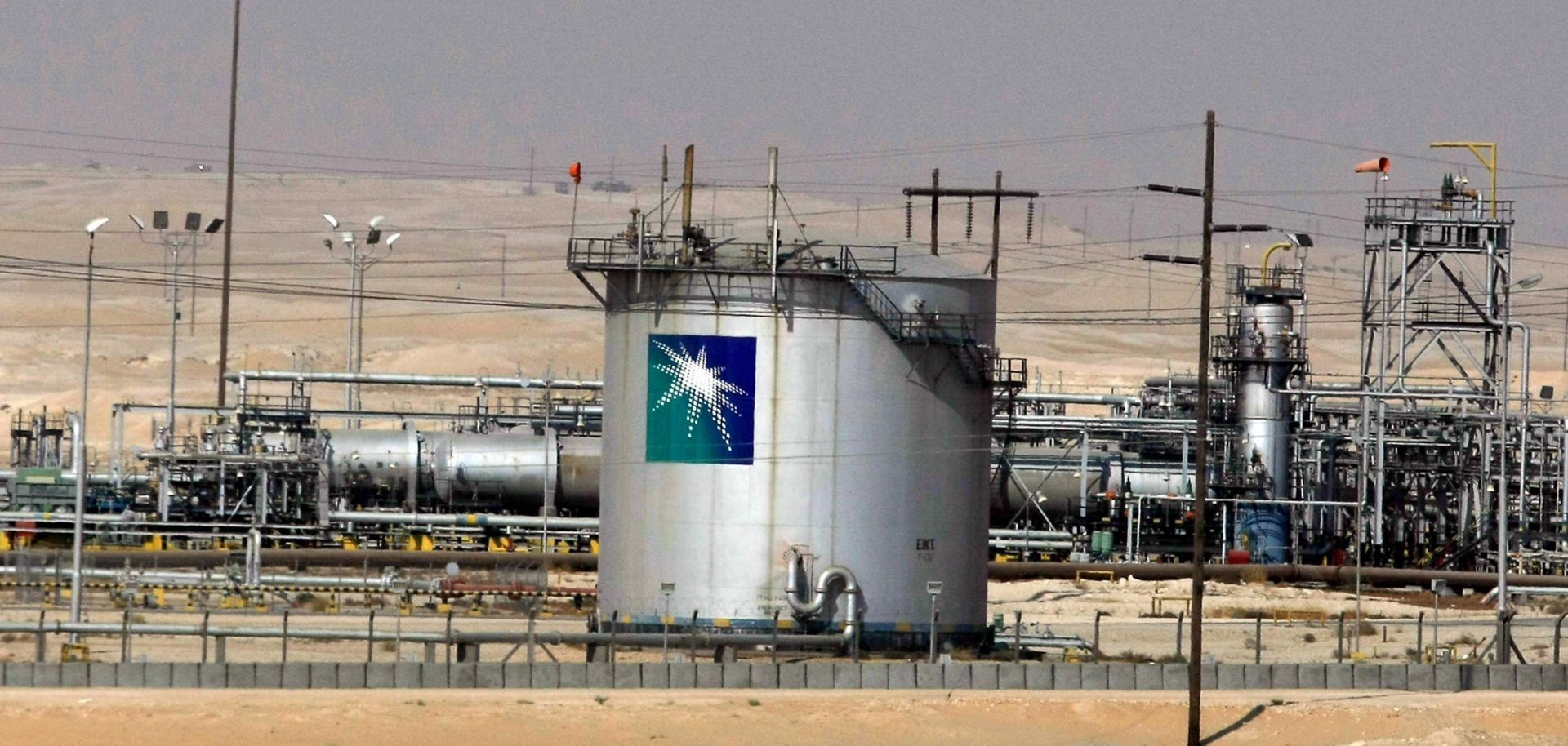ASSESSMENTS
Will Saudi Aramco Fall Prey to a Prince's Politics?
Jan 3, 2018 | 09:00 GMT

A Saudi Aramco oil facility in Dammam, about 450 kilometers (280 miles) east of Riyadh. The company may not retain its competence, efficiency and skilled internal management for long.
(HASSAN AMMAR/AFP/Getty Images)
Highlights
- Crown Prince Mohammed bin Salman hopes that his push for greater transparency and an initial public offering of Saudi Aramco will boost the massive firm's efficiency.
- However, his consolidation of power and plans for reform risk undermining the unusual independence and competence that historically have made the national oil company more competitive than its peers.
- If Saudi Aramco does not preserve its apolitical and technocratic nature, it will have difficulty addressing the many challenges looming ahead.
Subscribe Now
SubscribeAlready have an account?
